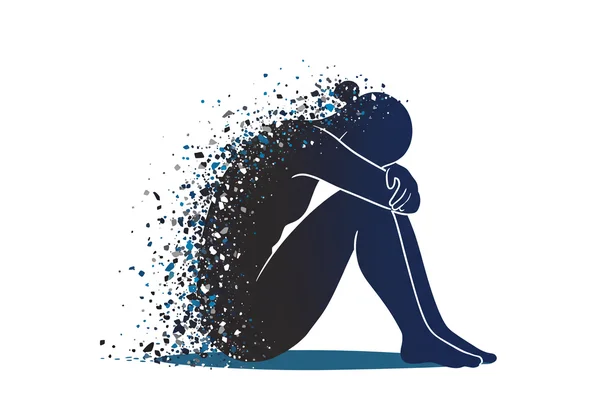Unmasking Autism: Why Autism in Women is Often Missed (An Autistic Quiz Perspective)
July 13, 2025 | By Phoebe Harrington
Feeling different or misunderstood, especially as a woman, can be isolating. You might find yourself exhausted after social interactions, struggling to connect in ways that seem effortless for others, or constantly replaying conversations. This internal dissonance often leads to a nagging question: Am I autistic? Many adult women suspect they might be autistic but don't fit traditional stereotypes, often due to a phenomenon called autistic masking. Let's explore autistic masking: what it is, why it's so common in women, its impact, and how embracing your true self can lead to greater well-being. Understanding these unique traits is the first step towards self-acceptance and finding your community. To begin your journey of self-discovery, consider taking a reliable autistic quiz.
Understanding Autistic Masking & Camouflaging
Autistic individuals, particularly women, often develop sophisticated strategies to navigate a neurotypical world. This involves actively suppressing natural autistic behaviors and mimicking neurotypical ones. This effort is known as autistic masking or camouflaging.

What Does Autistic Masking Truly Mean?
Autistic masking refers to a set of learned social strategies where an autistic person consciously or subconsciously hides their autistic traits to appear neurotypical. This might involve forcing eye contact, scripting conversations, suppressing stims (self-stimulating behaviors), or even feigning interest in topics they don't care about. It's a complex, often exhausting performance to fit in and avoid stigma or negative judgment. While often associated with women, masking can occur in any autistic person.
Why Do Autistic Individuals Mask Their Traits?
The primary motivation behind camouflaging autistic traits is often a desire for acceptance and a fear of rejection. From an early age, autistic individuals may notice they process the world differently. They might receive subtle (or not-so-subtle) cues that their natural behaviors are "wrong" or "weird." This leads to a powerful drive to conform. Reasons for masking often include:
- Social Acceptance: To avoid bullying, exclusion, or awkwardness in social settings.
- Professional Success: To be seen as competent in workplaces, which often value neurotypical communication styles.
- Safety: In some contexts, unmasking can lead to discrimination or even danger.
- Internalized Ableism: Believing that their authentic self is inherently flawed or undesirable.
- To Pass: The hope of being perceived as "normal" or not drawing unwanted attention.
This constant effort to "pass" takes a significant toll, especially when traits like sensory sensitivities or communication differences are naturally present.
The Unique Presentation of Autism in Women
For many years, autism research was predominantly focused on male presentations, leading to a pervasive stereotype of what autism "looks like." This has caused a significant number of autistic women to be overlooked or misdiagnosed, often well into adulthood. The truth is, autism in women frequently manifests differently.
Common Autistic Traits Often Overlooked in Women
While core diagnostic criteria for autism remain consistent, their expression in women can be subtle and internalized, leading to late diagnosis autism. Here are some common traits that are often missed:
-
Social Camouflaging: As discussed, women are often socialized to be people-pleasers and adaptable, making them highly skilled at masking.
-
Special Interests: Instead of traditional "male" interests like trains or facts, women might have deep, intense interests in psychology, literature, animals, or specific public figures. These interests can be just as consuming but are seen as more "socially acceptable."
-
Sensory Sensitivities: Highly sensitive to textures, sounds, lights, or smells, but they might internalize discomfort or develop coping mechanisms that appear "normal."
-
Emotional Intensity: Experiencing emotions deeply, but often suppressing outward displays. This can lead to internal overwhelm or meltdowns when alone.
-
Executive Function Challenges: Difficulties with organization, planning, and task initiation, which might be attributed to laziness or anxiety rather than a neurodevelopmental difference.
-
Difficulty with Female Friendships: While masking helps them navigate social circles, they might struggle with the nuances of female friendships, feeling like an outsider or experiencing intense social anxiety.

If these experiences resonate, an autistic quiz for adults can provide initial insights.
How Societal Expectations & Gender Roles Influence Masking
Societal expectations play a huge role in why autism in women is often missed. Girls are typically encouraged to be empathetic, nurturing, and socially adept. They are often praised for being "good listeners" or "quiet," which can inadvertently reinforce masking behaviors. The pressure to conform to gender roles means that autistic girls learn early on to suppress behaviors that might be deemed "unfeminine" or "weird." This cultural conditioning means they often become proficient at mimicking social cues, even if they don't inherently understand them, leading to an am I autistic quiz female search for validation. This constant effort contributes to the high rates of mental health issues later in life.
The Invisible Cost: Impact of Sustained Masking on Well-being
While masking might offer temporary social benefits, the long-term impact on an autistic individual's mental and physical well-being is significant. The constant performance is incredibly draining and can lead to severe distress.
The Link Between Masking and Autistic Burnout
One of the most severe consequences of sustained masking is autistic burnout. This is a state of intense mental, physical, and emotional exhaustion, often accompanied by a loss of skills and reduced tolerance to stimuli, resulting from trying to function in a world that is not designed for neurodiverse individuals. It's not just "stress"; it's a profound exhaustion that can last for months or even years. Common signs of autistic burnout include:
-
Extreme fatigue, even after rest.
-
Increased sensory sensitivities.
-
Difficulty with communication or executive function.
-
Loss of previously acquired skills (e.g., ability to mask effectively).
-
Intense desire for isolation.
-
Increased meltdowns or shutdowns.

If you are experiencing these signs, our quizzes can help you reflect on your current state and provide resources.
Mental & Emotional Health Implications of Camouflaging
Beyond burnout, camouflaging traits can lead to a range of other mental and emotional health issues. The constant suppression of one's true self can result in:
- Anxiety and Depression: The chronic stress of masking can trigger or worsen these conditions.
- Identity Crisis: Not knowing who you truly are beneath the mask, leading to feelings of emptiness or confusion.
- Low Self-Esteem: Believing you are only acceptable when you're performing a role.
- Alexithymia: Difficulty identifying and expressing emotions, which can be exacerbated by masking.
- Increased Suicidality: The profound isolation and exhaustion from masking contribute to higher risks.
Understanding these implications is crucial for prioritizing self-care and seeking appropriate support.
Towards Unmasking: Strategies for Authenticity & Self-Acceptance
The journey towards unmasking is deeply personal and empowering. It involves recognizing the toll masking takes and consciously choosing to live more authentically. This doesn't mean abandoning all social graces, but rather finding a balance that honors your neurotype.
Practical Steps to Reduce Masking & Embrace Your Authentic Self
Embracing your authentic self after years of masking requires conscious effort and self-compassion. Here are some strategies:
-
Self-Awareness: Pay attention to moments when you feel the urge to mask. What triggers it? How does it feel physically and emotionally?
-
Safe Spaces: Identify environments and people where you feel safe to unmask. This might be a trusted friend, family member, or a neurodiversity-affirming community.
-
Set Boundaries: Learn to say no to social engagements that are excessively draining. Prioritize your energy.
-
Allow Stimming: Let your body do what it needs to do. Stimming is a natural self-regulation tool.
-
Advocate for Yourself: Educate others about your needs and communication style.
-
Practice Self-Compassion: Unmasking is a process. Be kind to yourself as you navigate this journey.

For deeper insights into your personal traits, our autistic quiz can serve as a supportive tool on this path.
Community & Resources for Autistic Women
Finding a supportive community is vital for autistic women on their unmasking journey. Connecting with others who share similar experiences can validate your feelings and provide practical advice. Look for online forums, local support groups, or social media communities focused on neurodiversity and autism in women. Resources from neurodiversity-affirming therapists can also be invaluable. Remember, you are not alone in your experiences, and many are finding empowerment through understanding their autism spectrum disorder traits.
Discovering Your Authentic Self with Our Autistic Quizzes
The journey of understanding your neurotype, especially if you're a woman who has masked for years, is profound. Recognizing autistic masking as a coping mechanism is a powerful first step towards self-acceptance and managing conditions like autistic burnout. Our platform offers a supportive, confidential space for this exploration. With scientifically-backed autistic quiz tools like the CATQ (Camouflaging Autistic Traits Questionnaire), we help you gain insights into your unique traits. Remember, these aren't diagnostic tools, but a preliminary step to explore your experiences and decide if further professional assessment is right for you. Take an autistic quiz today to gain valuable insights.
Frequently Asked Questions About Autism & Masking
Am I autistic, and how can I know for sure?
Am I autistic is a question many adults ask, especially if they feel different or misunderstood. While an online quiz cannot provide a diagnosis, it can offer valuable insights into whether you exhibit common autistic traits. Official diagnosis requires a comprehensive assessment by qualified healthcare professionals. For a preliminary look at your traits, try an autistic test quiz on our site.
What specifically are the signs of autism in adult women?
Signs of autism in adult women often include strong social camouflaging, intense but often subtle special interests, sensory sensitivities, social fatigue, difficulties with abstract social concepts, and a tendency to internalize emotional overwhelm. These can be more nuanced than traditional presentations. Our am I autistic quiz female is specifically tailored to address these common experiences in women.
Is it possible to stop autistic masking, and what are the benefits?
Yes, it is possible to reduce autistic masking, though it’s a gradual process. The benefits include reduced autistic burnout, improved mental health (less anxiety, depression), a stronger sense of self, and the ability to form more authentic connections. It involves self-awareness, setting boundaries, and finding safe spaces. Embark on your journey of self-discovery by exploring our site's resources and learn more.
Can an online quiz like yours truly help me understand if I'm autistic?
An online autistic quiz like those on our platform can be a helpful starting point for self-reflection. Our tests, such as the CATQ, are based on scientific questionnaires and can indicate patterns consistent with autistic traits. They provide a confidential, low-pressure way to explore possibilities, but they are strictly screening tools and cannot diagnose autism. For a deeper understanding of your neurotype and personal insights, consider our AI-powered report.